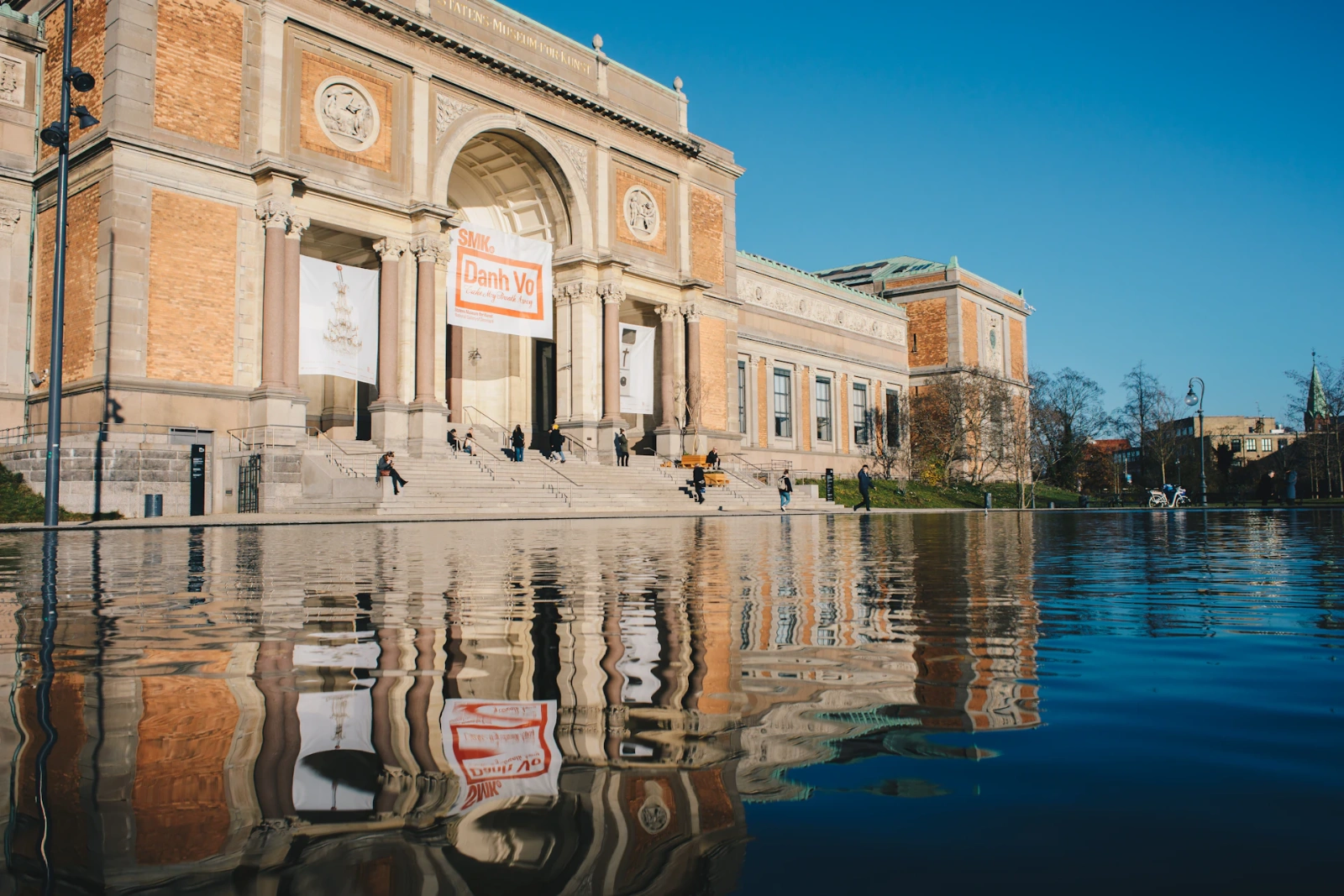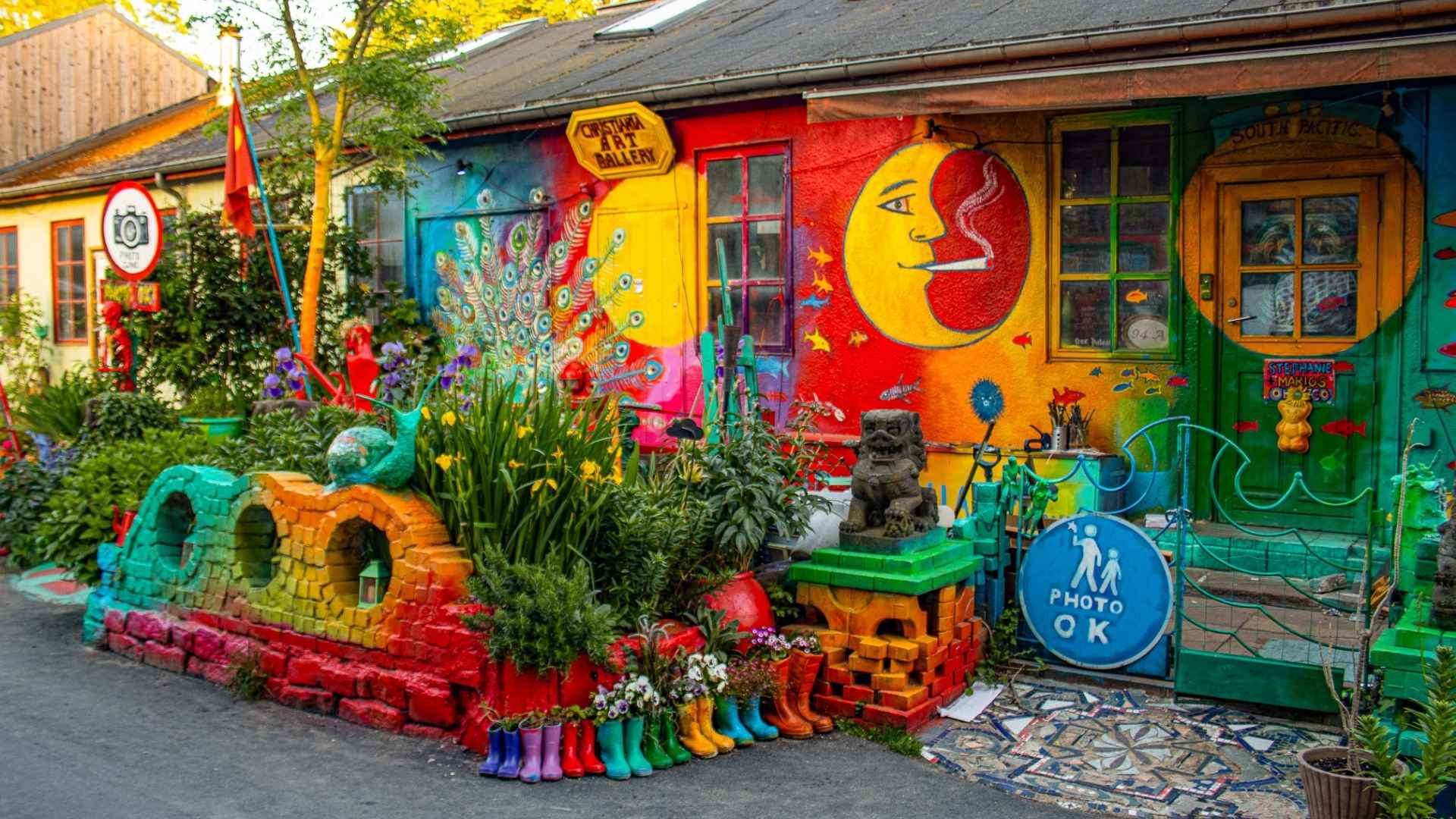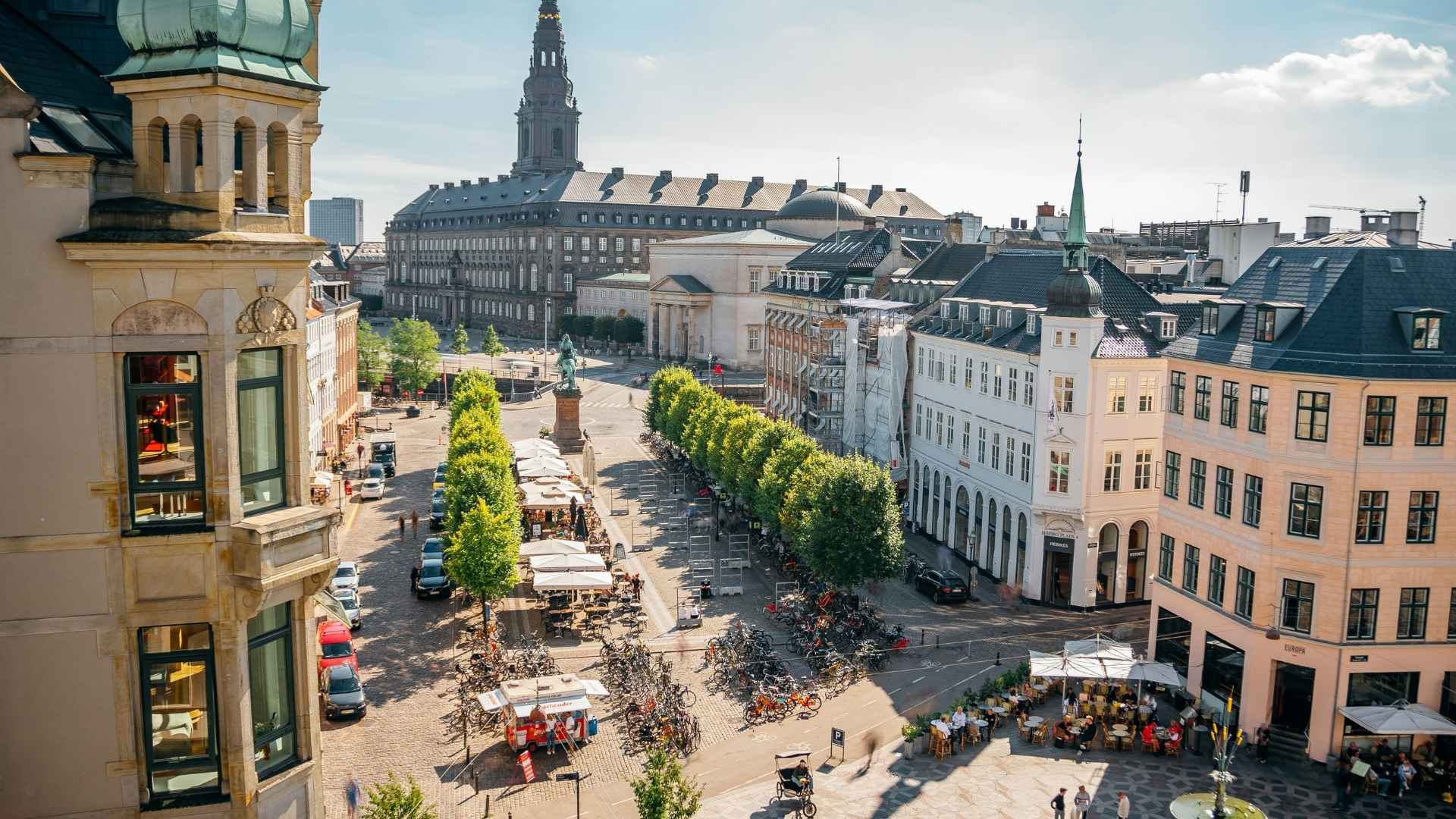TLDR: Freetown Christiania is a self-governing "free city" within Copenhagen, famous for its colorful houses, homemade architecture, and alternative lifestyle. Today, the area is safe for tourists and photography is now generally allowed. It is free to enter, and located just a short walk from the Christianshavn Metro station.
Established in 1971 on an abandoned military base, Freetown Christiania is one of Denmark's most visited and controversial attractions. This car-free neighborhood operates under its own special law and offers a mix of art galleries, music venues, and organic eateries.
And trust me, Christiania is a neighborhood like no other. This guide covers the updated safety rules for 2026, how to get there, and the truth about the recent changes to the cannabis trade.
What is the story behind Freetown Christiania?

Christiania's story began in 1971 when a group of hippies occupied an abandoned military barracks in Copenhagen. Their aim was to create a self-governing community based on principles of freedom and communal living. Over the years, Christiania has evolved into a thriving neighborhood with its own unique culture and way of life.
The community's founding was marked by a spirit of rebellion against conventional societal norms. The residents sought to create a space free from government control, where creativity and individuality could flourish. Despite numerous challenges and attempts by authorities to shut it down, Christiania has managed to survive and maintain its autonomy. But who is running the place, one might ask?
Who runs Christiania?

Christiania is run by its residents, who collectively make decisions through a consensus-based democratic process. The community operates as a collective, with various committees responsible for different aspects of governance, such as finance, infrastructure, and social activities.
This self-governing model allows Christiania to maintain its autonomy and foster a sense of ownership and responsibility among its residents.
What are the rules of Christiania?

Today, Christiania is a neighborhood much like many others in Copenhagen. The same rules apply here as they do when walking down Strøget in the city center. It's just as safe as any other area in a major European city - as long as you show respect for the locals and use common sense, you have nothing to worry about.
That said, it hasn’t always been this way. While Christiania was founded on principles of freedom, open-mindedness, and peace, it went through a long period marked by gang presence and illegal activity. For years, criminal groups exploited the area’s autonomous status to sell cannabis, particularly along what was once known as "Pusher Street" - a place where taking photos or behaving suspiciously was strictly forbidden.
But everything changed in 2024. The local community in Christiania decided to reclaim their neighborhood. Pusher Street was dismantled, the gangs were pushed out, and today the area is undergoing a powerful transformation. Visitors can now stroll through the Free Town with peace of mind, soaking in its unique atmosphere, colorful murals, and creative spirit - without fear or uncertainty.
Christiania Rules & Code of Conduct (2026):
- No Cars: Visitors must park outside; the area is strictly pedestrian and bicycle-only.
- Photography: With the closure of Pusher Street, photography is now permitted in most areas, but always ask before taking close-ups of residents or their private homes.
- No Violence: The community has a strict non-violence policy.
- No Hard Drugs: Hard drugs have always been banned in the community.
Is Cannabis legal in Christiania?

Cannabis is not legal in Christiania or anywhere else in Denmark. However, even though Pusher Street has been closed down and the criminals are gone, the area is still known for its open cannabis market, despite it being illegal under Danish law.
As a visitor, you should be cautious, as purchasing or possessing cannabis can result in fines or legal consequences.
What is Christiania famous for?

Christiania is famous for its vibrant street art, unique architecture, and alternative lifestyle. The neighborhood is a haven for artists, musicians, and free spirits, attracting tourists and locals alike. Visitors can explore colorful murals, quirky buildings, and a lively cultural scene that includes music festivals, art exhibitions, and workshops.
A good example of the alternative lifestyle and vibrant art scene is the Christiania Art Gallery, which is well worth a visit.
Top Things to See in Christiania:
- The Grey Hall (Den Grå Hal): The largest concert venue in the district.
- Nemoland: A popular café and outdoor stage with free Sunday concerts in summer.
- ALIS Wonderland: A world-famous skate bowl built by the locals.
- DIY Architecture: Walk along the ramparts ("Volden") to see the most creative, hand-built houses.
Is Christiania safe for tourists?

Yes, Freetown Christiania is safe to visit in 2025.
While the area once struggled with gang activity - especially around the now-dismantled Pusher Street - locals took a stand in 2024 to reclaim their community. Today, Christiania feels like any other Copenhagen neighborhood: peaceful, creative, and welcoming.
As long as you show respect and use common sense, you can explore its colorful streets and alternative culture without worry. The atmosphere is vibrant, and the transformation has made it a safer and more authentic experience for visitors.
How to get to Christiania?
It is easy to get to the area in Copenhagen known as Christiania. It is located in the Christianshavn district, and you can reach it by:
- Metro: Take the M1 or M2 line to Christianshavn St. From there, it is a 6-minute walk down Prinsessegade. Look for the large wooden entrance sign.
- Bus: Bus 2A stops at the main entrance (Stop: Bodenhoffs Plads).
- On Foot: It is a 15-minute walk from Nyhavn across the Inderhavnsbroen (Inner Harbour Bridge).
What is the best time to visit Christiania?
As a residential neighborhood, Christiania is open 24/7, but the businesses inside have specific hours.
- Best Time: Visit on a sunny afternoon or weekend to see the area alive with music and market stalls.
- Christmas: In December, the Grey Hall hosts a famous alternative Christmas market (Julemarked), which is highly recommended.
- Café Hours: Most cafes and galleries open around 10:00 AM – 11:00 AM and close by evening.
Is Christiania Copenhagen worth visiting? (2026 Update)

Christiania is one of the most unique experiences in Copenhagen and one of my personal favourites. It offers a unique glimpse into a different way of life, very far from traditional Danish living. If you're intrigued by counterculture, art, and communal living, you should visit for sure.
However, its appeal may not resonate with everyone. For those seeking a more conventional tourist experience, Copenhagen has plenty of other attractions to explore.
What else can I do in Copenhagen?

Copenhagen is a city brimming with attractions and activities. Here are a few must-see destinations:
- Tivoli Gardens: One of the world's oldest amusement parks, offering rides, entertainment, and beautiful gardens.
- Nyhavn: A picturesque waterfront area lined with colorful buildings, restaurants, and historic ships.
- The Little Mermaid: A famous statue inspired by Hans Christian Andersen's fairy tale, located by the harbor.
- Rosenborg Castle: A stunning Renaissance castle housing royal artifacts and surrounded by beautiful gardens.
- Canal Tours: Experience Copenhagen from the water, offering a unique perspective of the city.
Get more out of the destination
Christiania offers a unique cultural experience that complements the diverse attractions of Copenhagen. To make the most of your visit, consider using the StoryHunt app, which provides insightful tours and stories about Christiania and other fascinating places in the city.
Whether you're drawn to the vibrant street art or intrigued by the community's alternative lifestyle, Christiania offers a distinctive glimpse into Copenhagen's rich cultural tapestry.

.webp)










.jpg)





.avif)








.avif)





















.avif)





